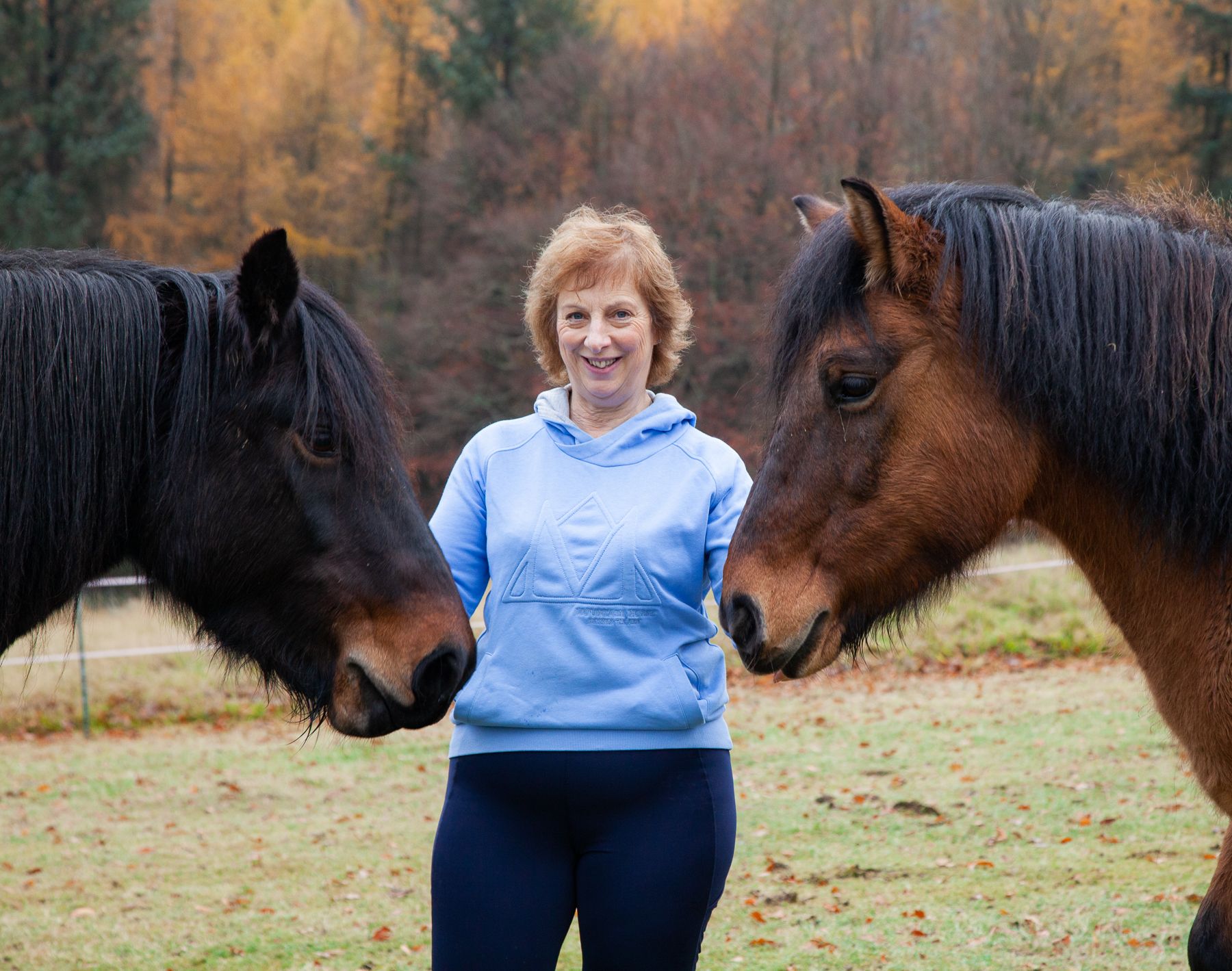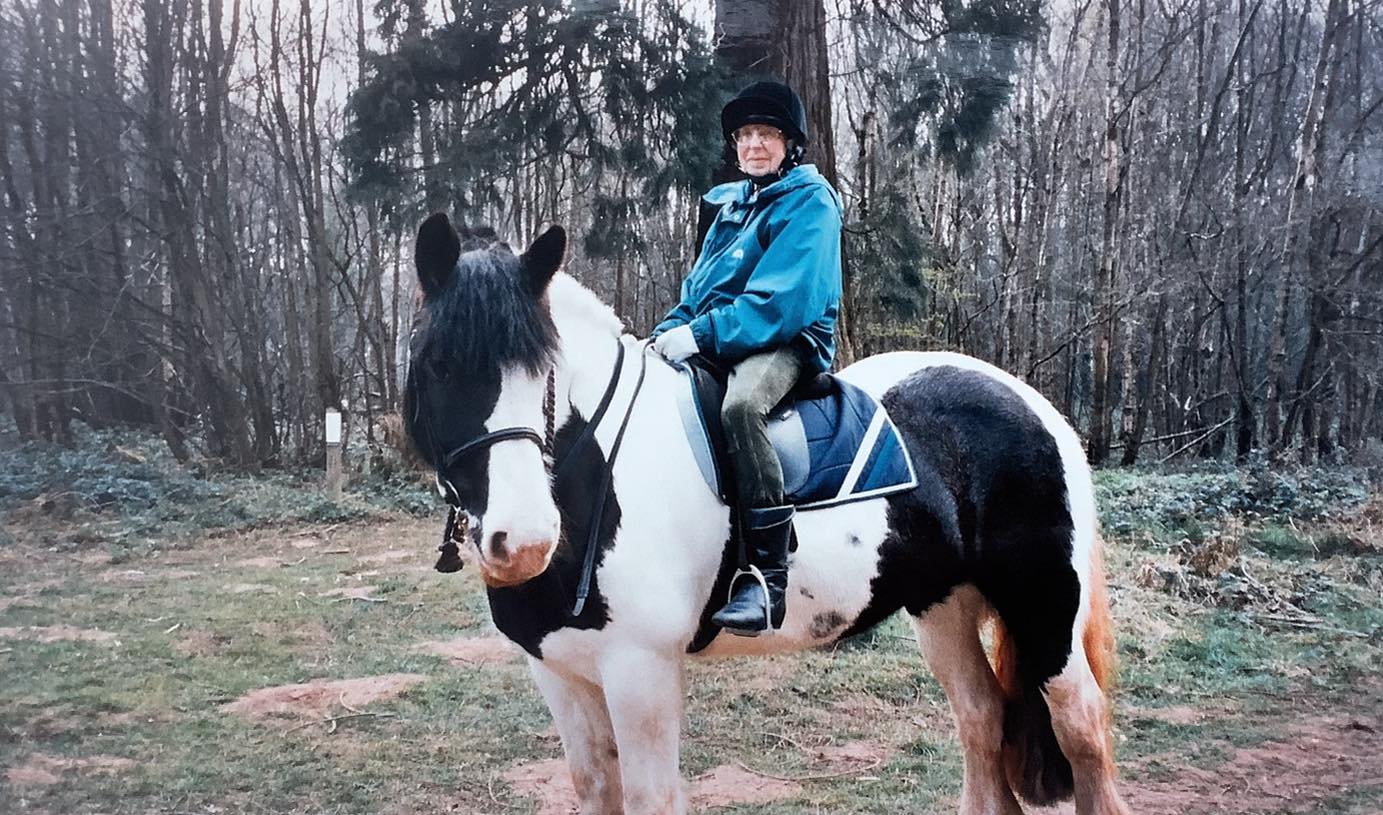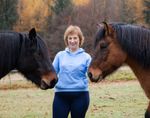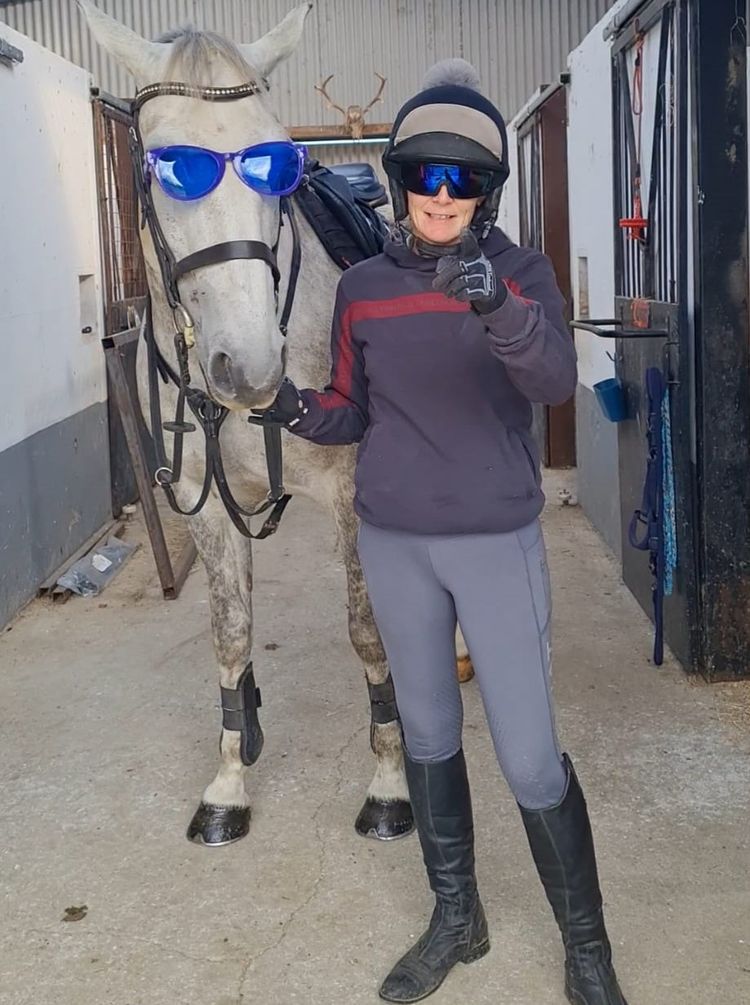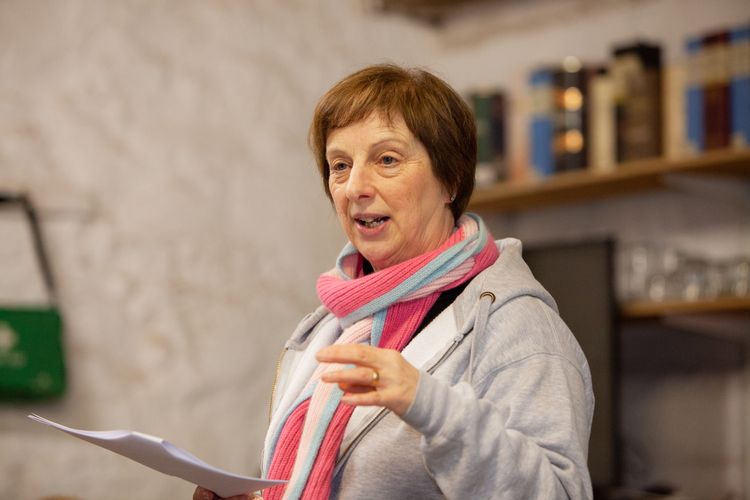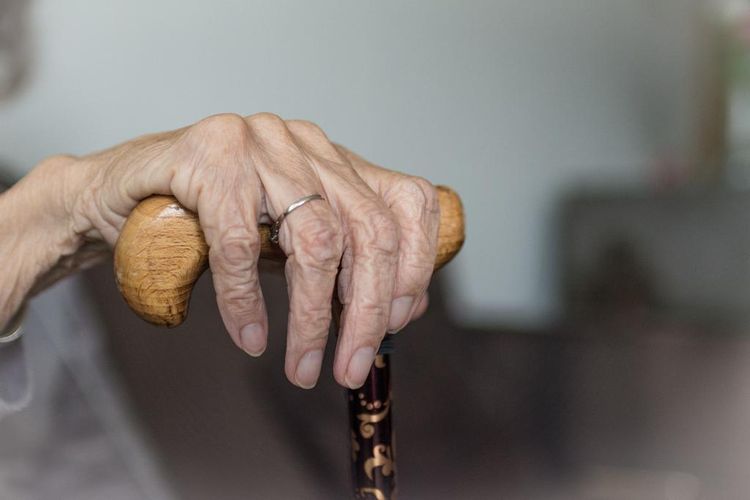AGE IS JUST A NUMBER
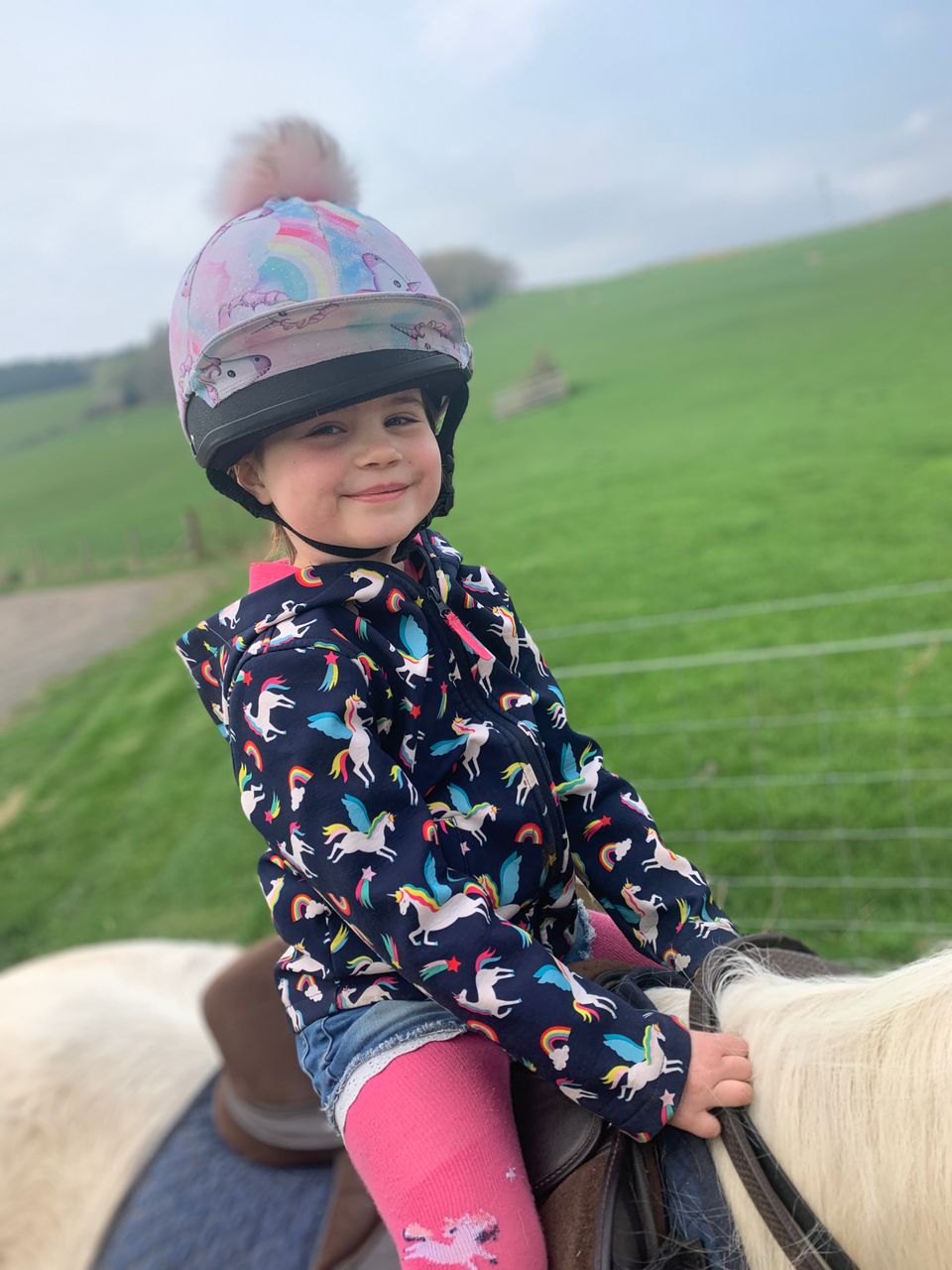
’m sure that you have been asked, many a time, how old you were when you started riding! Your answers will probably vary from “Before I could walk, I was virtually born in the saddle.” to “I watched National Velvet as a child and pestered my mum for riding lessons.” to “As an adult I was looking for a new hobby and fancied giving horse riding a go”. And so begins a true passion for riding and all things horse related, perhaps never realising at the beginning how a simple love of these beautiful animals could become an all-consuming lifestyle choice!
At the other end of the scale, I wonder if anyone reading this has ever been asked “How OLD were you when you stopped riding?”. It’s not a familiar question is it? I’d love to know if you have ever been asked that question. Perhaps the question may be “Do you think you’ll ever stop riding?” - what might your answer be to that?
I was working with a young girl a few years ago and, in an attempt to break the ice, I asked her how old did she think the youngest rider I had ever helped with a confidence issue was. She looked at me seriously and guessed her own age - nine years old - the actual answer was, in fact eight years old.
Then I asked her the age she thought the oldest person I’d ever helped was…. Again she looked at me very seriously and guessed…..THIRTY!!! Her Mum and I nearly choked but managed to contain our laughter and, of course, to a nine year old thirty does seem pretty ancient! The real answer was eighty four!
Riding really can be a life long pursuit and I believe that we evolve as riders throughout our lives.
As young children hopefully riding is a lot of fun. Falling in love with ponies, climbing on, falling off, laughing and getting back on without a second thought. Having adventures whilst learning the art of equestrianism and getting the basics in place which lay the foundations for future fun and excitement.
In teenage years, again, we hope and expect that riding is fun and exciting. Learning more and more, perhaps starting to compete and beginning to take it all a bit more seriously whilst at the same time experiencing that sense of immortality and invincibility that is common in youth.
Of course, teenage years can also be a lot more challenging with the onset of peer pressure and social media pressure and for some teenagers this might be the time when they stop riding due to those pressures or perhaps due to school responsibilities or simply finding other activities more attractive. Some teenagers might not return to riding but many more will miss it and return to riding later in their lives.
For those who continue beyond teenage years young adulthood might be the time of maximum riding achievements. At this stage riders are likely to have gained enough skill and experience to be able to get out and about doing the things they love on horseback and don’t yet have the responsibilities and commitments associated with adulthood.
Once full adulthood is reached, I have found over the years of working with 9 riders, that there are two distinct phases in rider’s lives. Both of these phases relate more to women riders that to men as I have a lot more experience of working with women than men.
Becoming a mother can change a rider’s attitude towards the sport dramatically. That understanding of responsibility for another human being often can be the start of “What if….?” types of self questioning. Not only the responsibility of parenting but also of career and financial responsibilities have to be taken into account. This is a phase of life where riders need to look at the risks involved in the sport and decide for themselves, as individuals, what level of risk is acceptable to them. Some riders might feel it necessary to restrict their activities whilst others are comfortable to carry on regardless whilst taking sensible steps to minimise risk as appropriate.
In adulthood, with all of its responsibilities, time can be a real challenge. However, with a bit of compromise and some good communication most adult riders can create opportunities for themselves to be able to do what they love. Perhaps having that time to themselves to do what they love makes them a better parent and partner?
The next significant phase that I notice for women riders is the peri-menopause and menopause years. This is a time when many women may experience anxiety for the first time and this can be very disconcerting or even alarming. There is growing understanding and increasing help for women at this stage of life so if you can relate to this then please do seek out help and support rather than suffering in silence. This is a stage in life where riding and remaining active is very important for both physical and mental health and dealing with any menopause related anxiety is vital so that riders don’t give up at this stage of life.
If you’re reading this and, like the young girl I mentioned earlier, you think that anything over the age of 50 is ancient then please do read on! I am now 62 years old and feel that I’m enjoying riding as much as ever. My own horses are both retired so I don’t have anything of my own to ride but I have weekly lessons on some lovely school masters and continue to learn something new each time I ride. This year I went on a short riding holiday which involved six or more hours per day in the saddle riding through amazing Scottish landscapes. I have plans to do something similar next year and intend to continue riding for many years to come.
I’m sure you all know many horsewomen riding in later life and this is one of the beauties of equestrianism - AGE IS JUST A NUMBER - and as long as you enjoy it the KEEP ON RIDING!
